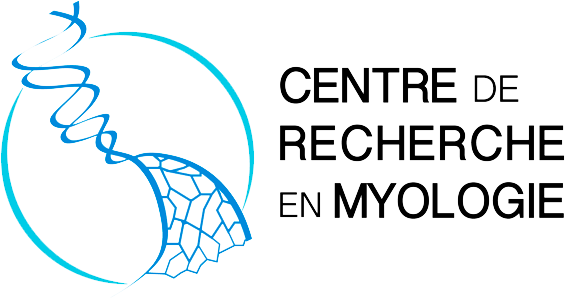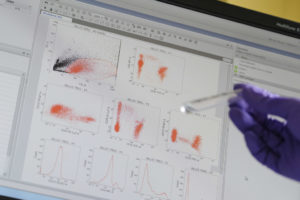
PhD student within the Neuromuscular Connectivity in health and diseases team, Myriam Boëx has succesfully defended her thesis on September 24th, 2020, under the supervision of Laure Strochlic.
Abstract
The neuromuscular junction (JNM) is a peripheral synapse formed by the anatomic and functional contact between a motor neuron and a striated skeletal muscle fiber. NMJ development requires a dynamic communication between motor axons and their muscle targets through several reciprocal signaling. Understanding the mechanisms involved in cell polarization at the NMJ is crucial to develop new therapeutic strategies for neuromuscular diseases. Among the limited number of secreted factors that orchestrate this trans-synaptic coordination, the Wnts diffusible cues have emerged as critical signals for synaptic differentiation, yet how Wnt signaling drives NMJ formation and maintenance remain poorly understood and controversial in mammals. In this context, the aims of my PhD project were 1) to validate the functional role of Wnt-MuSK interaction in vivo and 2) to study the Wnt Planar Cell Polarity (PCP) pathway during NMJ assembly and maintenance in mammals. Interestingly, our team showed that Van Gogh-like protein 2 (Vangl2), a core PCP component, is accumulated at developing NMJ, at both pre- and postsynaptic sites. Moreover, Vangl2 interacts with a subset of Wnt morphogens that are secreted at the NMJ suggesting that a Wnt/Vangl2-PCP signaling is involved in NMJ development. By using a set of mutant mice along with a large panel of cell biological and biochemical assays, I found that muscle Vangl2 is critical for NMJ assembly and maintenance, by controlling the level of MuSK signaling activity. Collectively, my results uncover a new Wnt/PCP signaling in the muscle, relying on Vangl2/MuSK interaction that shapes neuromuscular connectivity by regulating postsynaptic assembly and integrity.
Key words. Neuromuscular junction (NMJ), Vang Gogh-Like 2 (Vangl2), Planar Cell Polarity (PCP), Wnt, Muscle-Specific Kinase (MuSK).

